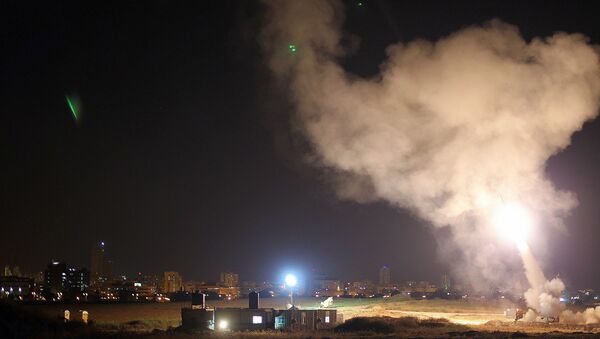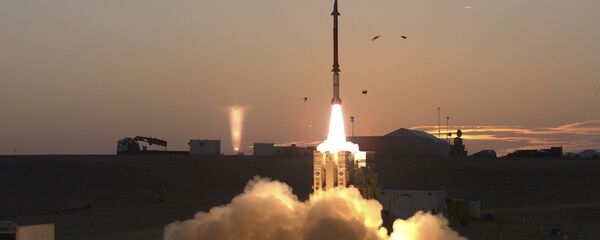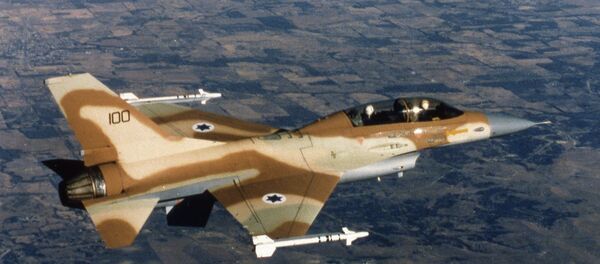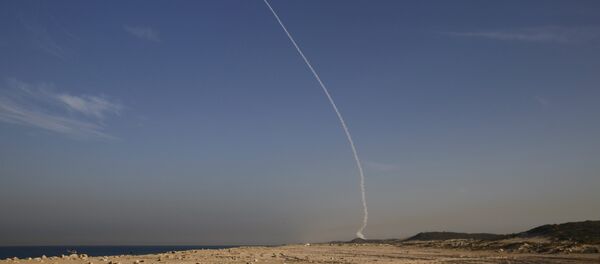Developed by Israel’s state-owned Rafael Advanced Defense Systems, the Iron Dome networks several missile batteries for short-range air defense. As of October of 2014, the system had successfully intercepted over 1,200 rockets.
With its proven reliability, the US Army is considering its own version of the Iron Dome interceptor missiles for the battlefield.
US-based defense contract Raytheon currently plays a significant role in producing components for Israel’s anti-missile interceptors. If Washington does, in fact, decide to use the missiles, Raytheon will produce the units under the brand SkyHunter.
"The minute that the US decides to procure Iron Dome, we will transfer all the knowledge and production file to Raytheon," said Yosi Druker, head of Rafael’s Air Superiority Systems Division, according to Defense News.
"Under our agreement, we will produce 40% to Raytheon’s 60%, but the capabilities will be 100% Raytheon."
The Army would use the missiles to defend US soldiers on the ground against cruise missiles and UAVs.
Tests are already underway. The US Army began launching Tamir missiles from its Multi-Missile Launcher (MML), at the White Sands Missile Range in New Mexico in April, and while two other interceptors are under consideration, SkyHunter seems like a heavy favorite.
"It’s clear that according to price and capability and maturity of the system, Iron Dome has advantages," Druker said.
While Raytheon has not yet confirmed the potential arrangement, the company has registered the trademark rights for "SkyHunter," describing it as "a ground-based missile interceptor system consisting of a guided missile with electro-optic sensors and adjustable steering fins for tracking and destroying incoming enemy rockets, missiles, artillery and mortars."
This isn’t the first proposed expansion of Israel’s missile defense system. In May, an Israeli Naval official confirmed successful tests of maritime-based interceptors.
"I can say all the threats shot toward our assets were targeted by the Adir radar – one of the most advanced naval radars that exists today – and interception was accomplished by Iron Dome," Col. Ariel Shir, head of combat systems development for the Israeli Navy, told reporters.
An "Iron Dome of the Sea" could one day defend Israel’s offshore energy assets.






